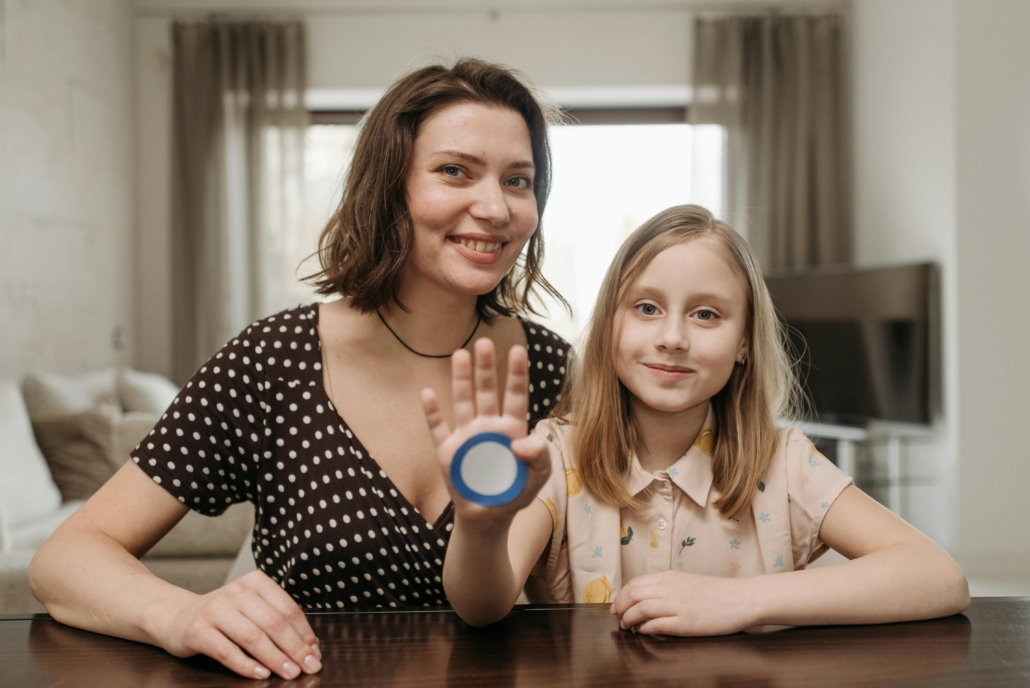7 Ways You Can Help Your Child Through Their Diabetes Diagnosis
 Diabetes is a chronic disease that affects millions of people around the world. It is characterized by high levels of glucose in the blood, which can lead to serious health complications if left untreated. For parents, receiving a diabetes diagnosis for their child can be overwhelming and scary. However, with proper support and knowledge, you can help your child manage their condition and live a healthy and fulfilling life. Here are seven ways you can support your child through their diabetes diagnosis.
Diabetes is a chronic disease that affects millions of people around the world. It is characterized by high levels of glucose in the blood, which can lead to serious health complications if left untreated. For parents, receiving a diabetes diagnosis for their child can be overwhelming and scary. However, with proper support and knowledge, you can help your child manage their condition and live a healthy and fulfilling life. Here are seven ways you can support your child through their diabetes diagnosis.
Educate Yourself on Diabetes
The first step in helping your child is to educate yourself about the disease. Learn about the different types of diabetes, how it affects the body, and what treatment options are available. This will not only help you understand your child’s condition better but also equip you with the knowledge to make informed decisions regarding their treatment.
It’s natural to feel overwhelmed and scared when your child is diagnosed with diabetes. However, it’s important to not let these emotions consume you. Take one step at a time, and try not to panic while educating yourself on the disease. Remember that with proper management, your child can lead a normal life. Ask your child’s doctor for reliable resources and support groups that can provide you with accurate information and practical advice on how to support your child.
Communicate Openly with Your Child
It’s essential to have open and honest communication with your child about their diagnosis. Let them know that it is not their fault and that you are there to support them in any way possible. Encourage them to ask questions and express their feelings, and be ready to listen and provide reassurance.
It’s important to always be available for communication with your child, whether it’s through regular check-ins or simply being present when they need someone to talk to. Let them know that you are there for them no matter what and that their feelings are valid. Being a good listener can help your child feel supported and understood during this difficult time.
Encourage a Healthy Lifestyle
A healthy lifestyle is crucial for managing diabetes. As a family, make an effort to eat nutritious meals and engage in physical activities together. This will not only benefit your child but also promote overall wellness for the entire family.
Involve Your Child in Their Treatment Plan
Diabetes management requires a collaborative effort between parents, healthcare professionals, and the child themselves. Involve your child in their treatment plan by teaching them about their medication, diet, and exercise routine. This will not only empower them but also give them a sense of control over their condition.
Making a treatment plan accessible and engaging for a child is crucial in ensuring their participation and adherence to it. Consider using visual aids, such as charts or diagrams, to help your child understand their treatment plan better. Use simple language when explaining the plan and involve them in decision-making processes whenever possible. It’s also important to make adjustments to the plan as needed, taking into account your child’s preferences and lifestyle. By involving your child in their treatment plan, you can turn it into a positive and interactive experience rather than a daunting task.
Create a Safe and Supportive Environment
Living with diabetes can be challenging for a child, especially in social situations where they may feel different from their peers. As a parent, you can create a safe and supportive environment for your child by educating their friends, classmates, and teachers about their condition. This will help reduce any stigma or misunderstanding surrounding diabetes.
A common complication of diabetes is delayed wound healing, which can lead to infections and other serious problems. As a parent, it’s important to know how to properly treat wounds to keep your child safe. Make sure to clean any cuts or scrapes immediately with soap and water and cover them with a sterile bandage. If the wound does not heal within a few days, seek medical attention. It’s also important to regularly check your child’s feet for any blisters or sores, as diabetes can cause nerve damage and reduce sensation in the feet. If you notice any, seek foot wound care immediately to prevent further complications.
Lead by Example
Children often learn from their parents’ behaviors and habits. If you want your child to adopt a healthy lifestyle, it is essential to lead by example. Show them the importance of eating well and staying active by making these choices a priority in your own life.
Involving the entire family in supporting a child with diabetes can make a significant impact. It not only creates a strong support system for the child but also promotes healthy habits for everyone. Encourage siblings to join in on physical activities and involve them in meal planning and preparation. This will not only help your child feel supported by their loved ones but also create a sense of unity and understanding within the family.
Seek Support From Others
Support from family, friends, and healthcare professionals can make a significant difference in managing diabetes. Don’t be afraid to reach out for help when you need it. Join support groups or connect with other parents of children with diabetes to share experiences and gain valuable insights.
Receiving a diabetes diagnosis for your child can be overwhelming. However, by educating yourself, communicating openly, involving your child in their treatment plan, creating a safe and supportive environment, encouraging a healthy lifestyle, leading by example, and seeking support from others, you can help your child manage their condition and lead a fulfilling life. Remember, your support and understanding can make all the difference in your child’s journey with diabetes. Good luck!
By Dixie Somers / Freelance Writer
Dixie Somers is a freelance writer who loves to write for business, health, and women’s interests. She lives in Arizona with her husband and three beautiful daughters. You can find her on Twitter and Facebook.

Leave a Reply
Want to join the discussion?Feel free to contribute!